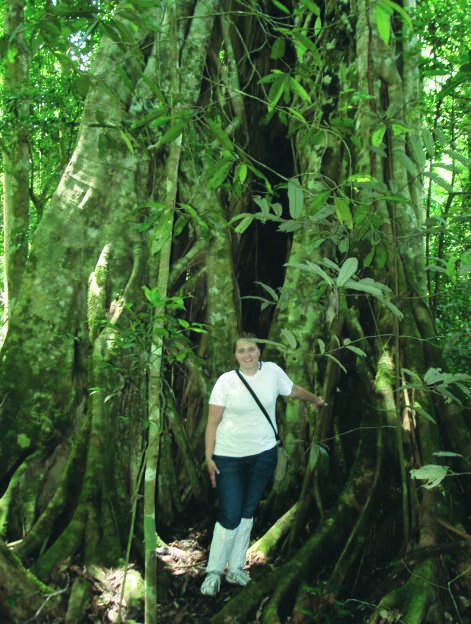- Candidates
- Login
- Set Up Account
- Create a Job Alert
- Search Tools
- Resources
- Employers
Editor’s note: The following article is a collaborative work by two students who spent their summer studying abroad. Rebecca Schneider is a student at the University of Missouri who spent her summer in the Czech Republic, and Sarah Shultz a student at the University of Tennessee who spent her summer in Thailand.
Once you have made the commitment to travel, thoughts such as: “How will I possibly pay for this all?” “Will I ever fit everything into just two suitcases?” and “Can I actually pass these classes?” constantly swarm inside your head.
These things can be overwhelming, but broken down in steps, the process is manageable. As veterans of the infamous study abroad experience, we will be using our experiences to provide some insight into the process.
The idea of studying abroad typically holds a wistful glow for most students. To actually study abroad would be wonderful, but most do not understand the realistic nature of it. However, it is no longer a thing of intimidation and doubt. Although it is now relatively easy to find yourself involved in a program abroad, you need to be aware of what you would like to get out of the trip. The time and money associated with going out of the country is something you want to be sure is worth your while.
Academically, it is important to keep in mind things such as: “Will my credits transfer?” “If I study abroad a full semester, will I graduate on time?” “Does the program focus on my agricultural interests?”
To answer these questions there is typically an entire department devoted to International Education, as well as study abroad directors responsible for managing programs for each area of study. Check with your school’s study abroad office to discover what programs are available that align with your academic interests.

(L to R) Danielle Bellis, Becky Schneider, Morgan Gauby and Becca Bunton at a coal strip mine. Summer school participants had the opportunity to learn about the effects of strip mining on the economy and surrounding communities in the Czech Republic.
Study abroad directors can assist in providing information regarding credit hours and subjects of study. If understanding agricultural practices of other countries is your number one reason for traveling, be sure your program offers such opportunities.
Sometimes, if the area of study that interests you is not currently a topic of travel, your study abroad director can help in developing an opportunity designed for your interests.
The study abroad director will help you get started by telling you when and how to apply, program costs, and highlight the numerous scholarships and loans that are available to students studying abroad.
The Director is the best person to talk to concerning a passport, vacci The Director is the best person to talk to concerning a passport, vaccinations, program guidelines or grades. Grading is different at every university, so be sure to find out what the policies are at your university and the school you will be attending abroad.
Traveling somewhere new can be intimidating, but there are some key points to keep in mind when planning for travel:
1. Speak with previous program attendees. Connecting with students who have participated in the program can help answer questions such as “How many bags should I pack?” “What type of clothes should I bring?” “Is the food good?” “Where is the best place to buy cheap travel tickets?” “Should I travel by bus, train or plane?”
Since these students have experienced similar situations to what you have in mind, they will be able to let you in on some tiny aspects of the trip that you may not have considered. Learning from others’ personal experiences can be very helpful in making your trip the best possible.
2. Formulate your budget. One of the biggest worries about participating in a study abroad experience is the money. “How much is it going to cost me?”
First and most importantly, there is money out there in the form of scholarships and grants. All you need to do is go looking for it. You can find links to these sources through faculty advisors, Internet sources and other students who have previously studied abroad.
Regardless, the money that is spent up front should not be what you solely budget. Providing yourself with a budget also allows you to understand how much you want to travel outside of classes. Setting a budget for the trip will enable you to be realistic about your travel plans. Additional trips take additional money, knowing what you are interested in and the potential costs will help you stay within budget.
3. Research your location. Living in a foreign country brings new rules and societal norms. Understanding that cultural differences that exist are important, however knowing how to handle the differences are the most crucial aspect.
This can be done initially through doing some research via Internet or travel books. For any country, it is very important to understand as much about their lifestyle as possible. Not just for the sake of respect for their culture, but also to allow you to fully embrace the experience.
The initial thought when going to the Czech Republic is that it would be relatively similar to the U.S. since it is a developed country. However, it did not take long to realize that everything from facial expressions to the way food is consumed differed. Thailand was also full of surprises; the culture is a complete shock from what is the norm in the U.S.
In each country knowing about their social taboo’s, religion, and government helped immensely with understanding the people. Being able to connect with the people you meet and the places you go is one of the most rewarding aspects of traveling, and doing research will help you accomplish that.
Often while abroad you will be stretched as an individual. Opportunities will arise that you are not comfortable with, remember that part of the reason you should be traveling is to become familiar with other cultures. Getting outside of your comfort zone is where the most personal growth occurs, because you are then able to respect and understand your surroundings.
Knowing what you want to get out of the experience will help you to fully appreciate your opportunity. However, to maximize the fulfillment of your goals, do not be afraid to take a very serious approach to them. Before leaving, you should record your specific goals of the trip.
For example, one of my major interests is in the area of poultry science and one of my major goals was to learn more about the avian flu crisis in Thailand as well as their related bio-security techniques. Because of this specific goal, I was able to talk with my program director as well as my host family. They made arrangements for a tour of their university poultry farm and a lecture on the current status of the avian flu by their leading researcher on the topic.
Finally, take a moment to realize the amazing opportunity that is being presented. Journal your experiences so that you can relive the moments once you are back home. Be sure to pack a camera and post pictures or blog online to communicate with family and friends back home.
The benefits that can be gained for both personal and academic goals are incredible while studying abroad. With the world market growing as quickly as it is, having an international experience puts you one step ahead in the future job market. Therefore, the opportunity to go abroad that is provided through education is something to be consumed and utilized.
Studying abroad can be a volatile piece of your resume and student portfolio, the key is communicating your experiences to employers as you begin the job search process. Employers recognize that students who travel abroad at some point in their scholastic career are often the “cream of the crop,” however the student is responsible for communicating how those benefits will factor into their ability to be top employees for the company.
Students often make the mistake of letting the social experience of studying abroad overshadow the professional and soft skills it provides. Employers are looking for students who have stepped outside of their comfort zone to go on the trip and spent their time wisely by learning a new language, exploring the country, and embracing the culture. These are all skills that can be paralleled to the workplace.
Using examples from your study abroad experience in your interview, mentioning how the trip has impacted your career decision in your cover letter, and strategically wording the experience into your resume will allow you to get the most out of trip abroad.

Sarah Shultz in front of a Mangrove tree in the Khao Yai Tropical Forest of one of the largest national parks in Thailand.